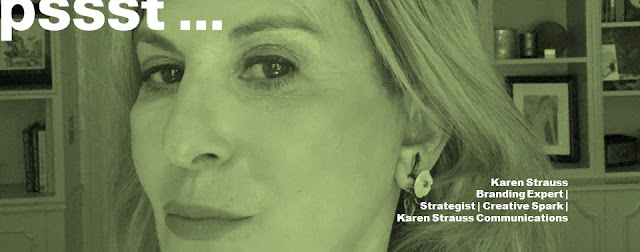TRENDSCOUTING DOES NOT KNOW ANYTHING ABOUT THE FUTURE. STORIES DO.
PhilippTheisohn has a clear view about the future. Well, at least a better view into
the next 100 years than any trendscout. Theisohn, researcher at the University
of Zurich, is an expert in science fiction literature. He analyses the visions
and images of sci-fi authors which can help us predict the future. An aspect
that can change the way you view “Storytelling”.
It´s not
surprising, isn´t it: fictional imagination frames the path to our real,
non-fictional future. Physicists, engineers, IT-specialists – many of them are
inspired by Georg Orwell´s “1984”, Stanley Kubrick´s “2001: A Space Odyssey”,
the Star Wars and Star Trek-series, Steven Spielberg´s “Minority Report”,
Marvels Superheroes and books from Isaac Asimov on Robotic or Daniel Suarez
“Daemon”.
Aware or unaware - they thrive and work for this futuristic worlds
and its abilities come true: A hologram to transmit information (Star Wars), a
computer to advise human beings (Odyssey), a holodeck to create virtual reality
(Star Trek), a screen to swipe free in the room (Minority Report), an
exoskeleton to improve human bodies (Marvel).
So stories
predict the future? Yes and no. Psychologists know how stories influence our
mind and this may help us with this question. According to psychological
studies great stories work in three ways:
- Stories help us to prove existing experiences. We see a hero in a story and follow him in situations we already know. It´s interesting to see how the hero copes with a familiar situation and we match his/her response to the challenge with our own experience.
- Stories help us to make new experiences. We delegate the experience to the hero who lives through a situation, a problem or challenge we´ve never been in (and does not want to be in reality). For the audience it´s interesting to see how the hero responses to a totally new situation.
- Stories give context. A story helps us to give meaning to a series of facts. To bring an order to a bunch of information, which make it easier for us to understand and remember this data.
Sci-Fi
stories give us two different views into the future. Some of them expand
existing experiences of today and predict the future as a logically further development
from now on (prove our experience). Others create totally new worlds, new
experiences and alternatives to today (delegate new experience). But both
story-types give context, try to help us learn and understand how the future
might look like.
Very
interesting in Theisohn´s findings is that Science-Fiction-Literature and films
shows mainly a positive and bright future for individuals, while society gets
worse and darker. But the opposite is true. In fiction
human beings in the future are able to enhance themselves with awesome new
technology like Ironmen´s super suit or Batman´s Batmobile. In contrary
society, cities, earth or nature – in Science-Fiction – happen to be awful,
dark and dangerous. Cities are insecure like Gotham City in “Batman”, shabby
and crowded like the New York of 2263 in the movie “The Fifth Element”, and
very often the whole (fictional) planet or earth is in danger as in Daniel
Suarez novel “Daemon”. Sure this has something to do with storytelling. We do
want “great heroes” – Superheroes. And without a conflict out in the world, the
story would not work. So that´s definitely one reason why fictional worlds are
not perfect or why heroes need to travel far to find “unperfected” planets or
aliens to get their adventure going. The “Enterprise” for example: the starship
has to explore strange new worlds and go where no man has gone before. Because
planet earth – in this fiction – is boring. They´ve solved all problems. Not a
good starting point for a story. And the story-rule of the “hero´s journey”
asks for an unperfected world somewhere out there.
But the
short distance we already overlook for the future gives slightly more hope for
the world: human beings may benefit from technology. Sure, but not that far as
science fiction predicts. But society, cities and planet earth will benefit
much more from futuristic technologies – inspired by science fiction stories.
A full interview with Philip Theisohns was published in GDI Impulse 4/2015.





